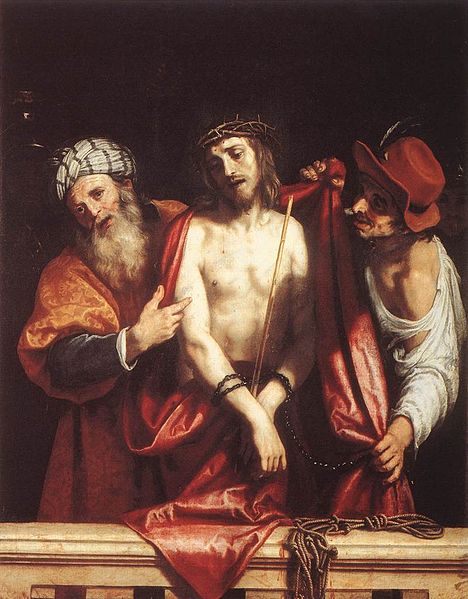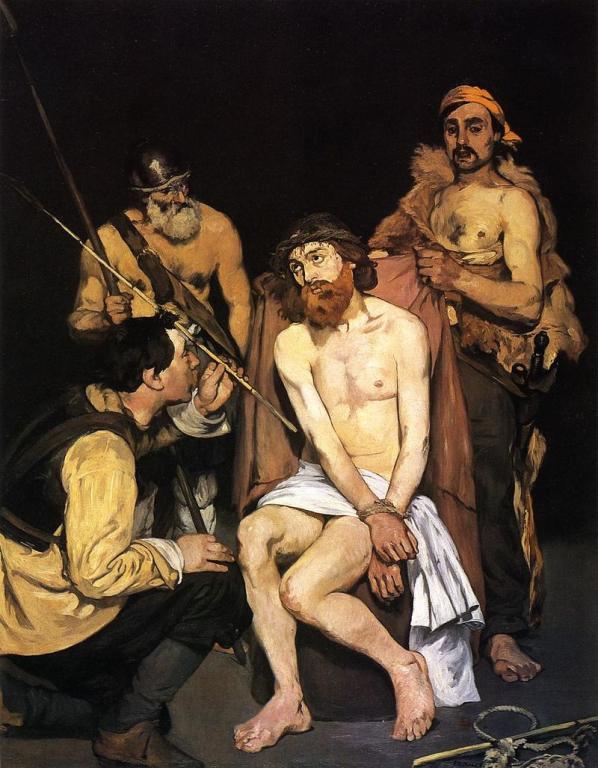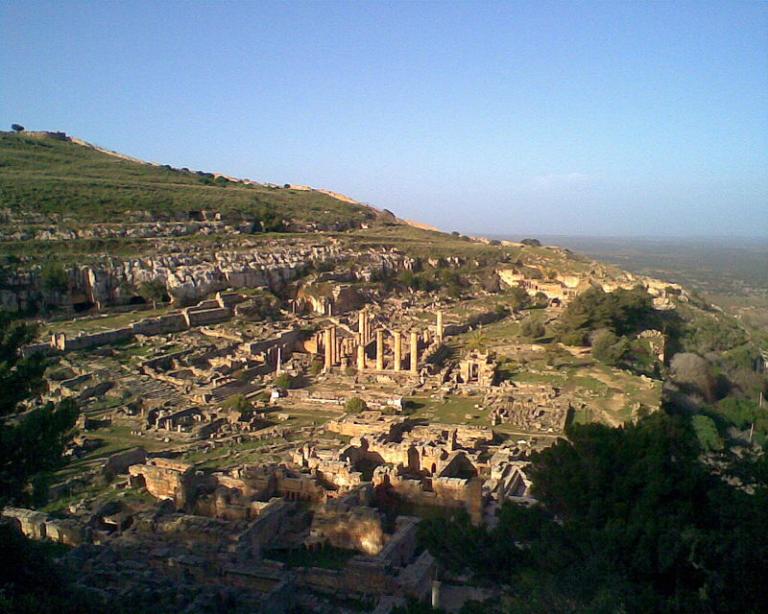
Lodovico Cardi (aka Cigoli), ca. 1607
(Wikimedia Commons public domain)
Compare Matthew 27:26-28; Mark 15:15, 17-20
When the chief priests answer Pilate by saying “We have no king but Caesar!” the echo of 1 Samuel 8:4-7 is impossible to miss:
So all the elders of Israel gathered together and came to Samuel at Ramah. They said to him, “You are old, and your sons do not follow your ways; now appoint a king to lead us, such as all the other nations have.”
But when they said, “Give us a king to lead us,” this displeased Samuel; so he prayed to the Lord. And the Lord told him: “Listen to all that the people are saying to you; it is not you they have rejected, but they have rejected me as their king.”

Wikimedia Commons public domain image
These passages — and, most particularly, Matthew’s account of Pilate’s washing his hands of responsibility for the death of Jesus while the Jews say “His blood be on us and on our children!” — have served for centuries as a powerful basis (or pretext) for Christian anti-Semitism.

(Wikimedia Commons public domain image)
Compare John 19:2-3
The story is familiar to us, and we often pass over it without really permitting it to enter fully into our minds. But this cruel mockery of a man who has already been condemned to death, and who will soon die in one of the most agonizing possible ways, is shocking and horrific. Humanity at its most inhumane.
And the fact that it was being done to a perfectly innocent man — and, what is more, to their real king, to the only person on the planet who had a fully legitimate claim on their humble submission and reverence — makes it more appalling yet.

This is the fifth “Station of the Cross” in St. Raphael’s Cathedral, Dubuque, Iowa
(Wikimedia Commons public domain image)
Compare Matthew 27:38; Mark 15:27; John 19:18
Simon of Cyrene came from the city of Cyrene, a Greek colony in North Africa that had a very large Jewish-minority population. Its ruins survive in today’s Libya, and that region of the country is still often called Cyrenaica even today.

The fact that Simon’s sons Alexander and Rufus are mentioned in Mark suggests that they were known to Mark’s audience (possibly in Rome), and, very likely, that they (and perhaps Simon himself) had become Christians.
Posted from Herzliya, Israel











